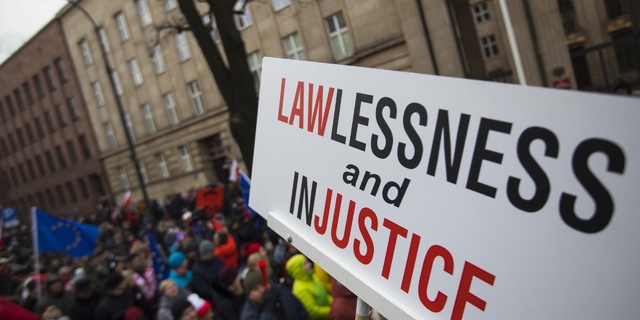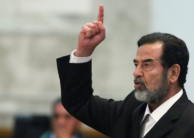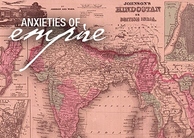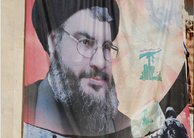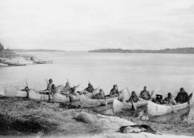|
Governance (tagged articles)
The keyword Governance is tagged in the following 33 articles.
2021, Vol. 13 No. 09
The COVID-19 crisis has exacerbated current global challenges. However, this article argues that this time of crisis can also be a unique opportunity for the existing global economic institutions - G20, WTO, IMF, and World Bank (WB) - to make the... Read Article »
2018, Vol. 10 No. 07
The Polish populist Law and Justice Party (PiS) overturned the mainstream consensus in Polish politics by returning to power in 2015 with a populist platform, decrying a selfish elite and advancing policies that critics saw as illiberal and authoritarian... Read Article »
2017, Vol. 9 No. 02
Following the failure of Structural Adjustment Programmes (SAPs) in the 1980s, and the liberal triumphalism caused by the end of the Cold War, development discourse underwent a significant transformation. Key to the new development paradigm was... Read Article »
2016, Vol. 8 No. 11
In Federalist No. 34 Alexander Hamilton, arguing for the ratification of the United States Constitution, claimed that the Roman Republic had “attained to the utmost height of human greatness.”[1] The Roman Republic, at least an idealized... Read Article »
2016, Vol. 8 No. 10
This article explores the nature of Canada’s political system as an evolving consequence of its roots in classical liberal thinking coupled with the self-protecting instincts of a variety of elite interest groups. In performing this exploration... Read Article »
2016, Vol. 8 No. 06
Despite being often overlooked within the discipline of International Relations (Lee, 2004: 29; Bambra et al., 2005: 187), the Governance of health has become central to international politics. As recent spatial, temporal and cognitive transformations... Read Article »
2016, Vol. 9 No. 2
Ambassador Paul Bremer of the Coalition Provisional Authority, America's interim government between Saddam's fall and the independent establishment of a new Iraqi government, issued two specific orders during his term which combined to create a... Read Article »
2016, Vol. 8 No. 02
Building a framework to understand a complex system, such as American Higher Education, requires a focused approach. The richness of history behind colleges and universities in the United States can lead analysts in any number of directions. From... Read Article »
2013, Vol. 5 No. 12
The evolution of the Governance model in higher education is a complex idea to pin down with simple definitions. New stakeholders, innovative ideas, and external demands make the institution of higher education a panacea for the ills of society.... Read Article »
2013, Vol. 5 No. 09
In May 2012, Shakil Afridi received a sentence of thirty-three years “rigorous imprisonment” and a large fine for aiding foreign intelligence gatherers in their quest for Osama bin Laden. The Pakistani state did not charge Afridi &ndash... Read Article »
2013, Vol. 3 No. 1
Widely known as a tropical tourist destination, the Fiji Islands have been gripped by political turmoil and have had four coups in a span of 20 years. Various factors such as tradition versus modernity, military-civilian relations, failure of constitutionality... Read Article »
2013, Vol. 3 No. 1
The international drug trade and the power of drug cartels have perplexed both analysts and policy makers for years. As drug production and trade grow, cartels have climbed to unthinkable heights of power and, in some cases, have crippled governments... Read Article »
2013, Vol. 6 No. 2
After the Partition of India in 1947, the two nascent countries of India and Pakistan each faced the difficult task of nation-state consolidation; however, Pakistan's problem was exacerbated by the fact that it had been geographically divided even... Read Article »
2012, Vol. 6 No. 1
The great nineteenth-century military theorist Carl von Clausewitz changed the art of war forever with his masterwork, “On War.” This text illuminated one of Clausewitz’s greatest contributions to military thought: the Trinity... Read Article »
2012, Vol. 4 No. 06
"Global Governance" is the buzzword of the moment in international relations. A rapidly emerging political discourse centered on environmental issues at a ‘global’ level warrants analysis. This paper argues that the effectiveness of... Read Article »
2011, Vol. 5 No. 1
Elyès Jouini is the vice-president for research of Université Paris-Dauphine and former Minister for the Economic and Social Reforms of the Tunisian transition government. He currently serves as the President of the Fondation Paris... Read Article »
2011, Vol. 2011/2012 No. 1
It was commonplace among academics of the 1970s to share an understanding of the frozen nature of international relations during the Cold War period, and to hold similar assumptions about the fixed character of the nation-state and the importance... Read Article »
2011, Vol. 2011/2012 No. 1
The Treaty of Lisbon1 has had effects on the workings of the European Union, and has significant implications both for how it functions through its provisions on Governance and decision-making and on how the union develops. Lisbon has political... Read Article »
2011, Vol. 2011/2012 No. 1
“In God We Trust” - the motto that inspired a nation built on the paradox ‘out of many, one’ could be construed as the wish for ‘divine goodness and order in the universe’.1 It entails the full recognition of... Read Article »
2011, Vol. 4 No. 2
When a country undergoes the process of decentralization, it requires a transfer of authority, responsibility, and/ or resources from the national to lower levels of government, with the purpose of creating good Governance. If successful, decentralization... Read Article »
2010, Vol. 2 No. 11
The term ‘nation’ is notoriously hard to define, not only because it has multiple meanings, but because the prevailing definitions change in response to various social and political factors (Ozkirimli 2000). In its most basic form a... Read Article »
2010, Vol. 2 No. 10
We live in a time today similar to the beginning of the 20th century; then, industrial forces were rapidly changing (as seen in the industrial revolution and the rise of the Western nation-state) in ways that parallel our current state of economic... Read Article »
2010, Vol. 2 No. 03
The United Nations states that at its broadest, Corporate Social Responsibility (CSR) can be defined as the overall contribution of business to sustainable development (UNDESA, 2007). That being said, unmonitored corporate social responsibility... Read Article »
2010, Vol. 2009/2010 No. 1
“But you can’t grow,” answered the Fairy. “Why not?” “Because Marionettes never grow. They are born Marionettes, they live Marionettes, and they die Marionettes.” “Oh, I’m tired of always being... Read Article »
2009, Vol. 2 No. 2
The issue of whether the recognition of Kosovo as an independent state might serve as a precedent for former autonomous republics of Georgia, South Ossetia and Abkhazia has been often debated. This paper aims at comparing the processes of recognition... Read Article »
2009, Vol. 2 No. 2
Regionalism—the efforts of a group of nations to enhance their economic, political, social, and cultural interaction—can assume various forms, including regional integration/cooperation, market integration, development integration, with... Read Article »
2008, Vol. 1 No. 2
The United Nations Security Council is the most important organ in the United Nations, charged with determining “the existence of any threat to peace, breach of peace, or act of aggression” and to “maintain or restore international... Read Article »
2007, Vol. 1 No. 1
In Washington as in Peking, in Beirut as in Bamako, the question is asked of us: what is the European Union’s (EU) foreign policy? In Lisbon on October 18th, the 27 member states agreed to a first response on means and tools. With the creation... Read Article »
2000, Vol. 1999/2000 No. 1
New Labour’ has committed itself to giving each division of the United Kingdom a parliament or assembly of its own. Already we have a Scottish Parliament and a Welsh Assembly (just because Wales is a principality does it not deserve a parliament... Read Article »
1999, Vol. 1998/1999 No. 1
With the election of Tony Blair to Downing Street in May 1997, there was indeed a great deal of anticipation as to what exactly this ‘New’ Labour government would do to put some life back into Britain. Ever since the jubilation&rsquo... Read Article »
1999, Vol. 1998/1999 No. 1
The current political climate in the United Kingdom is very much of devolution to regional governments, whether it is in Scotland, Wales, Northern Ireland or even in England. The process of devolution in Northern Ireland has emerged from... Read Article »
1997, Vol. 1996/1997 No. 1
It is a paradox of modern day politics that an issue of such immense constitutional and practical significance to the future of Britain as that of further European integration, which excites such great activity amongst politicians, should be... Read Article »
1997, Vol. 1996/1997 No. 2
It is obvious that the majority of the population finds the breaking of promises, especially those made during an election, unpropitious in anything but the most dire of circumstances. It could be said that if politicians’ election promises... Read Article »
Expedited Article Review
Submit an article and get a decision fast.
If you need a fast decision, INQUIRIES Journal offers expedited processing of your submission for a small fee. Depending on the expedited review option you choose, you can receive a decision in as few as 5-days.
In addition to a shorter review period, the fee supports the journal's continued operation and open-access publishing model. Standard submissions are always free. Submit Now » - Submit an Article to Inquiries Journal -
|


